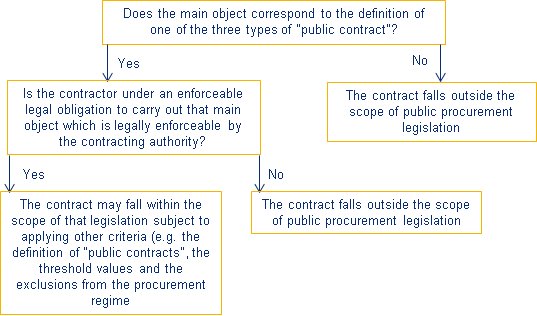Procurement in a nutshell – classification of public contracts
13th September, 2016
On 26 August 2016, the High Court dismissed a legal challenge by an unsuccessful bidder for West Berkshire Council's regeneration of a site in Newbury.
This week’s update discusses the judgment, which is a useful reminder of the classification of “public contracts” under the EU and UK procurement regimes.
A vexatious challenge
In September 2015, West Berkshire Council entered into a development agreement with St Mowden Developments for the regeneration of an area of land at the London Road Industrial Estate in Newbury for housing, office and retail space.
Following its unsuccessful bid, Faraday Development launched a judicial review of the Council’s tender process for the work. Faraday pursued two grounds of challenge. It argued that:
- the Council had failed to obtain the best consideration reasonably obtainable for the disposal of interests in its land, as required by section 123 of the Local Government Act 1972; and
- the development agreement for the regeneration work fell within the meaning of a “public works contract” and/or a “public service contract” under Directive 2014/24. Therefore the Council had failed to comply with the public procurement regime under the Public Contracts Regulations 2015 (PCR 2015).
The judge was unconvinced by the arguments advanced by Faraday. Assertions made regarding the best consideration issue were dubbed “wholly fallacious”. The attempt to classify the regeneration as a public contract was branded “wholly untenable”.
Both grounds of challenge failed and Faraday’s claims were dismissed by the court. No leave to appeal was given and Faraday was obligated to pay for the costs of the case.
What is a “public contract”?
The judgment contained a useful discussion of the meaning of “public contracts”, which followed from the second ground of challenge raised by Faraday.
Regulation 2 of the PCR 2015 requires that public contracts have “as their object the execution of works, the supply of products or the provision of services”.
It is a well-established principle that a contract with a CA will only fall within the scope of the regulation if its main object corresponds to the definition of one of the three types of public contract, i.e. execution of works, supply of products or the provision of services.
Identification of the main purpose of a contract is not restricted to the matters contained in its “essential obligations”, or to essential matters which the party contracting with the public authority is obligated to carry out or perform.
The judge provided a helpful outline (detailed in the diagram below) of how to approach the matter, by considering: What is the main object of the contract having regard to (a) the transaction as a whole and (b) any obligations which are essential to the transaction?

Following the above steps should help to avoid the error of pre-determining the object of a transaction by beginning with and simply focussing upon the obligations in the contract.
Why is this important?
The notion of public contracts goes to the core of the public procurement regime. The classification of a contract will determine whether significant obligations will apply to a CA under the procurement rules.
The guidance given on the definition of public contracts in Faraday may particularly be of use to CAs in the planning stages of a project, in helping to focus on the main object, where it has several purposes.
CAs should also take note of the exemplary governance exhibited by West Berkshire Council in this case. The Council’s clear and cohesive policies were robust in the face of the challenge, and the same was true of the reports presented to the Council.
The Council was diligent in taking account of the specialist advice which it commissioned. The development agreement itself was soundly drafted, incorporating the Council’s key objectives and taking note of the procurement regime.
Employing such foresight in the development of procurements will assist CAs to ward off procurement challenges, in particular by helping to expose the faults in any claims which are unwarranted.
How can I find out more?
If you have any queries on the issues raised or on any aspect of procurement, please contact us via our procurement hotline on 0191 204 4464.
Please note that this briefing is designed to be informative, not advisory and represents our understanding of English law and practice as at the date indicated. We would always recommend that you should seek specific guidance on any particular legal issue.
This page may contain links that direct you to third party websites. We have no control over and are not responsible for the content, use by you or availability of those third party websites, for any products or services you buy through those sites or for the treatment of any personal information you provide to the third party.
Topics:

